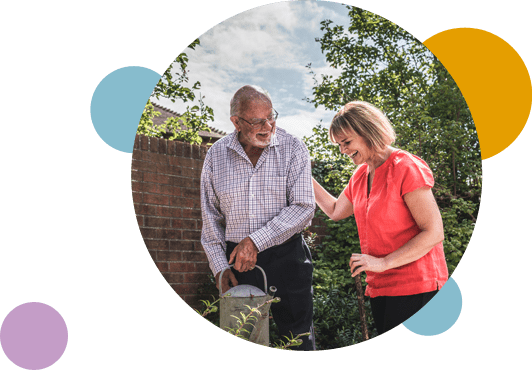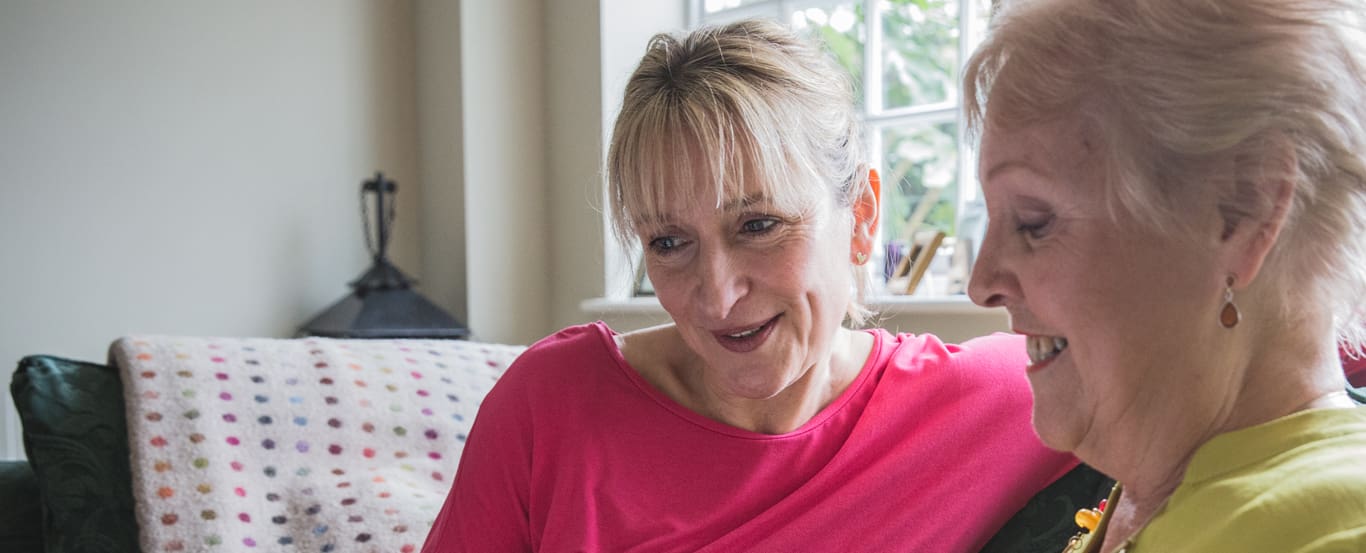Are stroke symptoms permanent?
If you or a loved one have suffered a stroke, you may have questions about the recovery process. Although a stroke and its resulting symptoms can be devastating, know that many people recover function and go on to live happy and fulfilling lives.
Whether stroke symptoms remain permanent depends on the severity of the stroke and the quality of treatment that follows. The sooner someone is treated for their stroke, the more likely they are to recover.
Here we will try to answer some of your stroke care questions such as how long do you have symptoms before a stroke and are stroke symptoms permanent?

What are stroke symptoms?
During a stroke, every second counts. By knowing the signs and symptoms of a stroke, you can take quick action and may even save someone’s life.
You can use the letters in the word F.A.S.T to remember the signs of a stroke:
Face – their face may have dropped on one side or they may be unable to smile
Arms – the person may be unable to raise their arms above their head
Speech Problems – their speech may be mumbled or slurred or they may be unable to speak at all despite being awake
Time – if you see any of these signs, it’s time to call 999.
While the F.A.S.T acronym describes the most common symptoms, other early symptoms of stroke include:
- Sudden numbness or weakness in the face, arms or legs, often on one side.
- Sudden confusion or trouble speaking
- Sudden trouble seeing in one or both eyes.
- Sudden trouble walking, dizziness, or loss of balance.
- Sudden severe headache
If you suspect that someone is having a stroke, it is vital to call 999 immediately. Early intervention may save their life and lead to a faster recovery.
Types of strokes
There are two main types of stroke:
Ischaemic: When the brain’s blood supply is cut off due to a blood clot it is called an ischaemic stroke. This is the most common form of stroke and accounts for over 85% of strokes in the UK.
Haemorrhagic: When a weakened blood vessel in the brain bursts, it is called a hemorrhagic stroke. These types of strokes are often caused by high blood pressure but other lifestyle factors can also increase your risk, such as inactivity, smoking, stress or excessive alcohol consumption.
Depending on the size and location of the stroke, any, or all, of these functions may be affected:
- Speech and language
- Movement
- Vision
- Bladder and bowel control
- Cognitive ability
- Emotional control
Are stroke symptoms permanent?
The sooner someone receives treatment for their stroke, the likelier they are to survive and regain full function. The human brain has an extraordinary power to heal itself with proper treatment. Early treatment and rehabilitation after a stroke can improve the chances of recovery and reduce long-term effects. Age, fitness level, and overall health can all affect the speed and extent of the recovery process.
Because every stroke is different, it is impossible to predict the extent of someone’s stroke recovery. The quickest recovery often happens in hospital, but the recovery process may continue for months or years after a stroke.
People that are positive and enthusiastic about the recovery process often obtain better results, which should provide hope during the challenging process of recovery.
Recovery and rehabilitation
After having a stroke, your body will need time to heal and recover. A team of doctors, nurses, and other health professionals with experience in stroke care will guide you through your rehabilitation process.
The road to recovery can be physically demanding and often frustrating, but it is important to remain patient and follow the guidance provided by your healthcare team. With the right support and after-care, it is likely you will go back to enjoying much the same lifestyle as you did before your stroke.
If you have already had a stroke, the chances of having another are higher. While it is not possible to control every risk factor , living a healthy and active lifestyle, quitting smoking, cutting down on alcohol,and reducing stress can all decrease your chances of having a stroke. Medication can also be prescribed to lower high blood pressure and reduce the risk of blood clots.
Stroke care at home
Although some people recover quickly after a stroke, many need long-term support in order to live independently. At The Good Care Group, we have been helping people across the country to recover from the often devastating effects of a stroke for over 10 years.
With the help of our highly personalised stroke care and rehabilitation service, you can enjoy an independent and fulfilling life in the comfort of your own home. We believe that individuals recovering from a stroke enjoy improved health outcomes and a better quality of life when they can recover at home.
Through our high-quality live-in care and respite care, we support many people from all walks of life as they recover from a stroke. We take a holistic and person-centred approach to stroke care that considers all the social, psychological, physical and medical requirements of the recovery process. By tailoring our care to each individual, we can provide life-changing, one-to-one support in the comfort of your own home.
Our professional carers are trained to monitor and identify any changes in your health, responding appropriately and avoiding any unnecessary hospital admissions. We also provide help with personal care, companionship and domestic responsibilities to improve well-being and quality of life.
Talk to us about your stroke care needs
Our friendly and experienced team is here to help you and your family make sense of the options available to you. Call us today – we will help you every step of the way.
